COMMUNICATION STUDIES: JOURNALISM AND MEDIA IN EUROPE
Main advantages of this programme:
Become an expert in journalism and media in the capital of Europe
The Master of Communication Studies: Journalism and Media in Europe is an academic master that prepares you to become a media and communications professional with a profound strategic and interdisciplinary understanding of journalism and media in a European context. You will study changing journalistic business models, journalistic practices in today’s digital age, and the relationship between journalism, politics, lobbying and ideology.
With its range of European and international institutions and the many media, journalism and communication professionals working here, Brussels is the perfect place to study media and journalism in Europe. As a student in this master you will be part of a dynamic and diverse group of students from across Europe and beyond. Teaching methods are interactive and designed to make good use of these diverse educational and national backgrounds.
In Brussels you have European and international institutions right at hand. This Master will acquaint you with European institutions, important journalism and media players, lobbyists and NGO’s, and communication and media agencies. The Master includes a yearly lecture series with prestigious speakers from the European media industry, journalism and European institutions. You will also get to know the Brussels reality through organised site visits, and the possibility of a traineeship.
The VUB Communication Studies Department also organises a second Master in Communication Studies: New Media and Society in Europe, which is focused on business, policy and user aspects of new media.
a quick campus tour
An open, international and diverse university
Vrije Universiteit Brussel (VUB) is a dynamic and modern university with almost two centuries of history. VUB has 15.000 students, 21% of which are international students from more than 120 different countries.
Being a student at VUB means learning in an international and open atmosphere of tolerance and diversity that will help you to grow into an independent and critical-thinking individual.
VUB offers high quality English-taught programmes, supported by outstanding research. VUB is known for treating its students as individuals. Professors and teaching assistants are available and open to answer questions from students. Interactive methods ensure close interaction and contribute to students growing into independent and critical individuals.
The Journalism and Media in Europe master is taught on a green campus where all facilities are close at hand: classrooms, student restaurant, library, sports facilities (swimming pool, gym, three sports courts, badminton facilities).
The programme in a nutshell
The 60 ECTS programme of the master includes mandatory courses and elective courses.
An interdisciplinary understanding of journalism and media in Europe
In the first semester you have seminar-based courses on ‘Journalism: Trends and Technologies’, ‘Journalism, Politics and Ideology’, and ‘Political Economy of Journalism in the EU’. In each of these courses you look at journalism and media in Europe from a specific perspective. You acquire a multi-faceted and interdisciplinary understanding.
In the second semester, you develop a blueprint for an innovative media project in 'Journalism Practice in Europe' and you study the potentials and limitations of a 'European Public Sphere'.
And across the two semesters, you write a master thesis on a selected topic. One of our professors will be your supervisor and guide you through the process of researching and writing the thesis.
6 ECTS - Semester 1
In Journalism, Trends and Technologies you will learn to critically reflect on current evolutions in the field of media and journalism in Europe, with a specific focus on digital disruption. You will bridge theoretical knowledge and journalism practice by applying theoretical concepts to understand, critically assess and formulate prospective insights on specific journalistic case studies in Europe.
Every week in class, we will discuss a specific trend in journalism, based on academic texts, trend reports and expert insights you collect and read in preparation of the discussion. You will position yourself as an expert in the field of journalism by writing a white paper on a journalistic trend or technology of your choice, deepening your readers' understanding of it and elaborating on the issues at stake. You can find a selection of previous white papers in our collection on Medium.
Course titular: Prof. Ike Picone.
All details on this course.
6 ECTS - Semester 1
In this seminar-based course you will get to know the concepts and theories to understand and critically reflect on the relations between journalism, the political field and ideology. How does journalism influence how we see the world? Why do journalists focus on certain events and topics whilst they ignore others? How can we understand the way they 'frame' reality? What are the political consequences of news selection and of the way journalists describe the world? What are the differences between mainstream journalism and alternative journalism, and why does this matter?
Through weekly group discussions of academic texts you will develop the vocabulary and critical perspectives to answer these questions. You sharpen your critical-analytical skills by writing two opinion articles, one about journalism and the economy and one about journalism and nationalism and/or war. And you get to show your insight into the relations between journalism, politics and ideology and your ability to use concepts to analyse these relations in an open book oral exam.
Course titular: Prof. Benjamin De Cleen.
All details on this course.
6 ECTS - Semester 1
How does journalism function as a business and how does that impact the content of journalism? Why do states fund public broadcasters? What are the political and economic threats to press freedom and pluralism? And what are the economic and political tools to safeguard press freedom? This course provides students with an in-depth overview of concepts and theories relevant for the study of the political economy of journalism. It sets out from a general introduction to political economy, moves to the political economy of media/communication, and then to the various political-economic systems of the journalism in Europe. Building on this, you move on to a more advanced study of specific sub-aspects of the political economy of journalism that are related to contemporary issues.
You will acquire the tools to understand and critically evaluate current issues regarding press freedom and the relation between the state, citizens and private actors in journalism. You prove your understanding of the political economy of journalism and your ability to critically analyze important cases during a written and oral exam where you discuss your written responses with the professor.
Course titular: Prof. Yazan Badran.
All details on this course.
6 ECTS - Semester 2
The course will cover, amongst other, the following topics:
- The EU decision making process;
- The main theories of EU integration;
- The main theories of the Public Sphere and the European Public Sphere;
- The EU Information and Communication policy and the role and responsibilities of the main EU institutions;
- The EU public sphere(s) and its state of the art and challenges ahead;
- The role and interplay of EU governance and EU citizenship and identity building in the making of a critical EU Public Sphere;
- The EU as a participative and deliberative polity;
- Specific topics, themes and case-studies related to the topics above might be included according to the EU Institutional agenda and the development of the EU integration process.
Course titular: Prof. Luciano Morganti.
All details on this course.
6 ECTS - Semester 2
How do journalists work today? How has technology changed journalism as a business? How has it changed the work of journalists? How do journalists engage with audiences today? What is digital storytelling? How does data journalism work? How can technology be used to collaborate on large journalistic projects? How do media monetize journalistic content in a digital age? And how do individidual journalists operate as journalistic entrepreneurs in this context?
The course consists of a mixture of lectures, guest lectures and visits of media organisations. You will write an assignment in which you integrate and apply the acquired knowledge into a blueprint for your own innovative media project, which focuses on innovation in an existing media organisation or on a journalistic start-up.
Course titulars: Prof. Ike Picone and Prof. Cristina Gonzalez.
All details on this course.
18 ECTS - Semester 1 & 2
Your master thesis is the perfect opportunity to get in-depth insight into a specific topic of your interest. To give some examples: in the past years students have interviewed female journalists about gender dynamics in the newsroom, analysed the impact of Twitter on journalistic practices, studied how young people read news using new media, analysed the social media strategies of Marine Le Pen, studied the discourse of Alternative für Deutschland, assessed the impact of the Berlusconi media empire on Italian politics.
You will be guided through the process by a supervisor, with whom you will have regular meetings. We make sure there is a good match between your interests and the expertise of your supervisor, to ensure a fruitful collaboration.
You can find some of the professors that supervise theses in the Journalism and Media in Europe master here, but other professors in the department might also be your supervisor.
All details on the Master Thesis.
18 ECTS - Semester 1 & 2
The master's thesis, variant pre-doctoral track, is a piece of work that completes the master's programme. By carrying out the ‘pre-doctoral track’ as a master's thesis the student demonstrates analytical and synthesis abilities, as well as an independent problem-solving ability at an academic level. The “Master thesis: Pre-doctoral track” is a track for motivated students with a high research-potential and with an interest in doing a PhD in the future. Excellent and motivated students (see admission criteria) can opt for this course, instead of the ‘classic’ master thesis course.
All details on the Master Thesis: Pre-doctoral Track.
Traineeship or elective courses: it's up to you
Building on the knowledge and competences acquired in the first semester, in the second semester, you can either choose to follow two elective courses or you can opt for a traineeship of between five and eight weeks. You can also combine elective courses and a traineeship, at a small extra cost.
6 ECTS - Semester 1
The course takes an interdisciplinary look at the role and meaning of data and privacy in mediated communication, online platforms and society, from a social, economic, technological and regulatory perspective. You will discuss central theories, research, terminology, current issues, and future challenges in big data, privacy, ethics, media literacy and user empowerment in different fields of society, from the perspective of Media and Communication Studies and STS (Science & Technology Studies). The course incorporates three inextricable and mutually determining components: artefacts, practices and social arrangements.
The lectures take an in-depth look at national and international developments in social media, sharing economy applications and data technologies (e.g. Facebook, Google, Snapchat, Uber, Internet-of-Things, Smart Cities, health apps,…). You apply the knowledge in concrete and interactive class exercises. This is coupled with practical interventions by scientists, government officials, public organisations (e.g. Belgian Privacy Commission), companies, civil society organisations, artists and other stakeholders.
Course titular: Prof. Jo Pierson.
All details on this course.
6 ECTS - Semester 2
This course looks closely at European media markets. You acquire insight in the characteristics of media and communication goods and services; main revenue streams and main players; and new media trends. Special attention is paid to topical issues and cases related to European media and communication markets, and to the diverging interests of different players.
The course has three kinds of classes: (1) lessons by Prof. Karen Donders on audiovisual production, aggregation and distribution; (2) guest lectures on, for example, radio, mobile telecommunications, film production, social media, and apps; (3) presentation and discussion of topical cases by students.
Evaluation is based on an essay on a current case study, participation in the classes, and an oral exam.
Course titular: Marlen Komorowski.
All details on this course.
6 ECTS - Semester 2
This course zooms in on the study of media, culture and globalization in media and communication studies.
Course titulars: Prof. Jan Loisen and Prof. Yazan Badran.
All details on this course.
6 ECTS - Semester 2
What is populism? How do left-wing and right-wing political movements use populist strategies? What is the relation between media, journalism and populism? This course focuses on populist and radical political discourses in Europe. Drawing on different perspectives in communication and political theory and discourse studies it provides you with the concepts to understand and study populist and radical political discourses. The course also looks at how mainstream political voices have reacted to populist contenders. In the weekly seminars you discuss academic texts and journalistic texts on populism to analyse different kinds of populist politics, especially the populist radical right and left-wing populisms in Europe.
You show your conceptual insight into populism in a critical-analytical essay about a selected populism-related topic. Your conceptual insights and ability to apply concepts is also tested in an open book exam.
Course titular: Prof. Benjamin De Cleen.
All details on this course.
6 ECTS - Semester 2
In this course you will learn about the what, why and how of lobbying and advocacy.
The course is taught in English at our French-speaking sister university ULB. The ULB is a ten minute walk or a short tram ride from the VUB.
12 ECTS - Semester 1 & 2
The fundamental goal of the traineeship programme in the International Master 'Journalism and Media in Europe’ is to have practical training and acquire practical skills. Concretely, the internship programme aims for students
- to operationalize and test, in a professional environment, the theoretical knowledge obtained in following the Master;
- to develop professional skills and competences in light of future jobs / career (incl. networking);
- to critically (self-)reflect on both the institutional environment and company/organization, as well as on personal development (knowledge-building, skills, strengths and weaknesses, ...) during the traineeship
All details on the Traineeship in Communication Studies: Journalism and Media in Europe.
A tailor-made preparatory programme
Depending on prior studies and expertise, certain students that are missing some of the competences needed for the master will be assigned one or two preparatory courses on top of their 60 ECTS master programme. Most often, these students are assigned 'Introduction to Communication Studies' and/or 'Research Methods in the Social Sciences'.
Get to know Brussels
As part of the programme, you will visit media organisations. Visits have included the Politico.eu and Euractiv newsrooms, the innovation hub of the Flemish Public Broadcaster, and media start-ups. You also get to know the major European and international institutions. Visits have included the EU Parliament, the European Commission, the European House of History. There is also a tour of historical cinema’s in the centre of Brussels. Apart from the organised visits, you can attend the international workshops and debates that take place on the campus and in Brussels almost every day.
Learning outcomes
Learning outcomes describe the intended knowledge and understanding, skills and attitudes that you must master after completing your studies. Do you want to know more about the specific learning outcomes of this programme? Go to the overview of learning outcomes of this programme
After graduation
A master degree in Communication Studies: Journalism and Media in Europe opens doors to many positions in a wide range of sectors in Brussels, Europe and beyond.
A wide variety of job opportunities
Our alumni are currently working as journalists and communication and media professionals in Brussels and across Europe and beyond in a variety of sectors and organisations. Positions include: journalists; press officers, communication officials and policy advisors in national, European and international institutions and NGO's; marketing managers and social media strategists; lobbying and advocacy; academic researchers, independent entrepreneurs in the media and communication sector.
Throughout the master year, and especially through your traineeship and/or thesis research, you will develop your own international network. Because of the inherently international student group in the master you will make international friends for life.
Through our facebook page we share relevant job posts, traineeship positions and interesting events for our current students as well as alumni. You can already follow the facebook page to see what is happening in the master.
VUB supports you in your search for a job
A master degree opens doors to many different branches and sectors. You will be able to work in the private sector, (non-) governmental organisations, or continue your academic career as a PhD researcher. Not sure what your next step should be? The VUB helps you with your first steps on the job market.
Alumni testimonials
Our alumni from all over Europe and the world share their experiences with the Journalism and Media in Europe master with you.
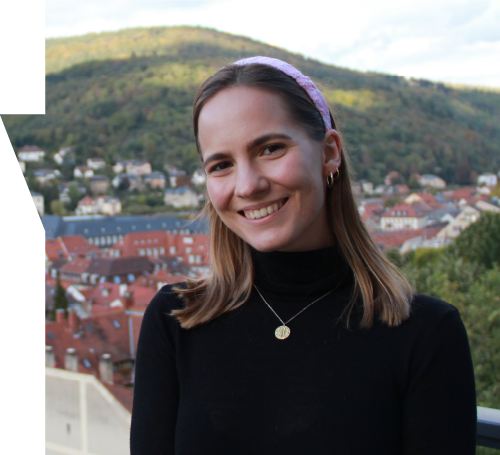 Maria Oschmann
Class of 2019-2020
Maria Oschmann
Class of 2019-2020
"The courses throughout the year are multifaceted and all take a different approach to the world of media and journalism and we often discussed current issues"
"What really sets the JME program apart, are the small class sizes. This way it was possible to actively participate and interact with the other students. We were a very diverse group with people coming from all over the world, but I thought it was especially enriching that not everybody had an academic background in Communication Studies. This way, the issues we talked about in class were highlighted from many different perspectives and we had lots of lively discussions. All of this was led by competent professors, who are all very passionate about the issues they teach. Moreover, the courses throughout the year are multifaceted and all take a different approach to the world of media and journalism and we often discussed current issues. In this one year, I was able to get a good insight into the different ways of thinking and dealing with current trends in the industry and I was handed the tools I will need in my professional career. But also from a personal point of view, I am sure that I will live on this experience for a long time!"
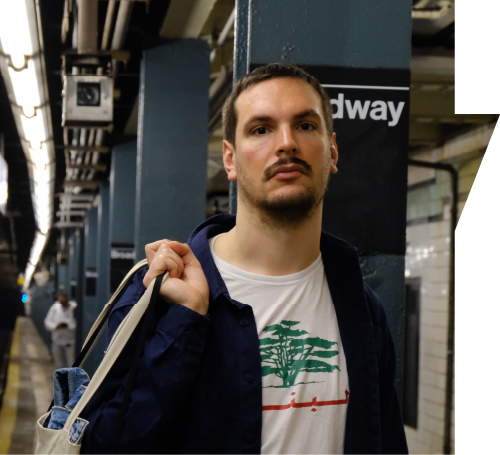 Giacomo Toffano
Class of 2019-2020
Giacomo Toffano
Class of 2019-2020
"The course equips you with appropriate intellectual tools and concepts to make sense of the ever-evolving journalism environment"
“The JME Master was an incredible opportunity to discover current developments in communication research: learning to stay with the trouble of the media and journalism environment, with a critical focus on social-political phenomena. The programme includes passionate lecturers, teachers that are willing to stimulate analytical reflection considering forefront trends in media reporting and news writing. With a bird's eye view on contemporary media scholars, exploring original theories along with long-standing pioneers of the discipline, the course equips you with appropriate intellectual tools and concepts to make sense of the ever-evolving journalism environment.”
Giacoomo is currently a PhD Student at VUB, Department ECHO
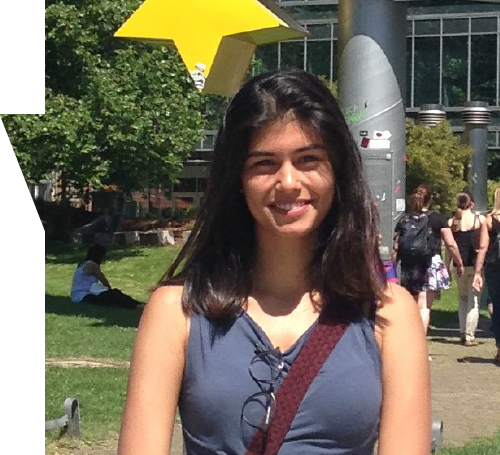 Anita Ishaq
Class of 2019-2020
Anita Ishaq
Class of 2019-2020
"This programme provided me with solid and comprehensive knowledge about the world of media in Europe, with all the challenges and disruptions it is currently facing"
"The JME Master’s offers a very balanced mix of theory and practice, width and depth, traditional and innovative lecture formats. I learned about a wide range of subjects from European policies to media business models to ideology critique, which all together provided me with solid and comprehensive knowledge about the world of media in Europe, with all the challenges and disruptions it is currently facing. The program also offers the possibility of doing a traineeship, which is a great way to throw yourself in the world of journalism, especially in a city like Brussels, where opportunities are behind every corner even for foreigners."
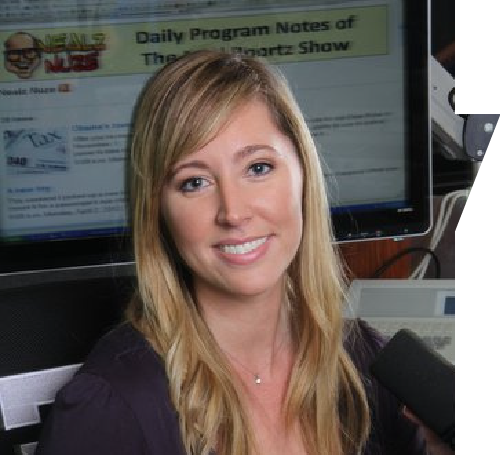 Cristina Gonzalez, United States
Class of 2018-2019
Cristina Gonzalez, United States
Class of 2018-2019
"The JME programme gave me a firm understanding of the complex journalism landscape in Europe and the changing dynamics of the field"
"Through the courses, thesis and the traineeship, I was able to engage and work with practitioners in Brussels, allowing me to take my career to the next level."
Cristina is currently a reporter/producer at Politico Europe
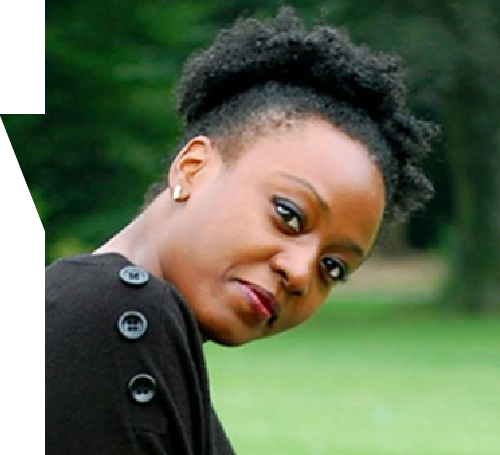 Axelle Asmar, Belgium,
Class of 2016-2017
Axelle Asmar, Belgium,
Class of 2016-2017
"I got to meet such a diverse group of students with different academic and educational background coming from Europe and beyond"
I graduated from the JME program in 2017 and looking retrospectively I can say without a doubt that this program is the best way to combine theoretical knowledge with practical hands-on experience!
The JME was for me first of all passionate and internationals lecturers, professors on top of their respective disciplines sharing their insight of the journalistic field while at the same time giving their students spaces to explore new ways of thinking. I particularly appreciated the focus of the program on opening discussions on topics that ranged from online journalism and democracy to media discourses and representations of diversity. This program has also provided me with resources, opportunities and skills that extended beyond the limits of the classroom.
More than that, the JME program was an amazing international experience; this master being an international program, I got to meet such a diverse group of students with different academic and educational background coming from Europe and beyond.
Last but not least least, Brussels may be small and rainy (sometimes), but it is the perfect environment for student life: the city harbors a variety of styles and nationalities combined with buoyant cultural life. My tip for any prospective JEM student: Take advantage of the city.
Axelle is currently profesionally active as researcher at VUB research department SMIT
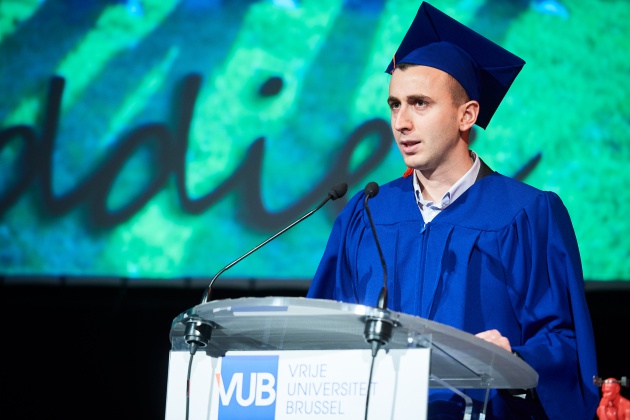
Arlind Cara, Albania, class of 2016, Project Coordinator Global Minds, International Relations and Mobility Office, VUB
During this academic experience, personally, I learned, interacted, engaged, and grew a lot. Being part of this program was a life-changing experience for me and my student mates from all the corners of the world. The JME program sets a good example in helping the international students to get adapted to a new challenging and multicultural environment such as Brussels. Our university, together with our dedicated and open-minded professors provide a good stimulating atmosphere for students to develop their scientific and intellectual capacities.
Taking into consideration everything I experienced during my masters I can say that it went beyond my previous expectations. Therefore, I urge all the potential international students to apply for this great program in order to give the chance to themselves to be part of this stimulating and competitive academic program.
Careercenter
HELPS YOU WITH WORKSHOPS, NETWORKING EVENTS, JOB FAIRS, TIPS ‘N TRICKS
First step in the market
Your professors
In the Journalism and Media in Europe master's, you will be welcomed by a group of young and dynamic professors. Each of them building on specific scientific expertise and teaching styles, they will make sure you will graduate with a nuanced and multi-faceted understanding of journalism, media, and communication in Europe.
The master's is organized by the Department of Communication Studies. All of our professors are academic experts in their field, and they draw on their own research in their courses. They are linked to one of three research centers: SMIT (Studies on Media, Information and Telecommunication), ECHO (devoted to the study of meaning across Media, Culture, and Politics), or DESIRE (Centre for the study of Democracy, Signification and Resistance).
Meet the core team of professors in the master's.
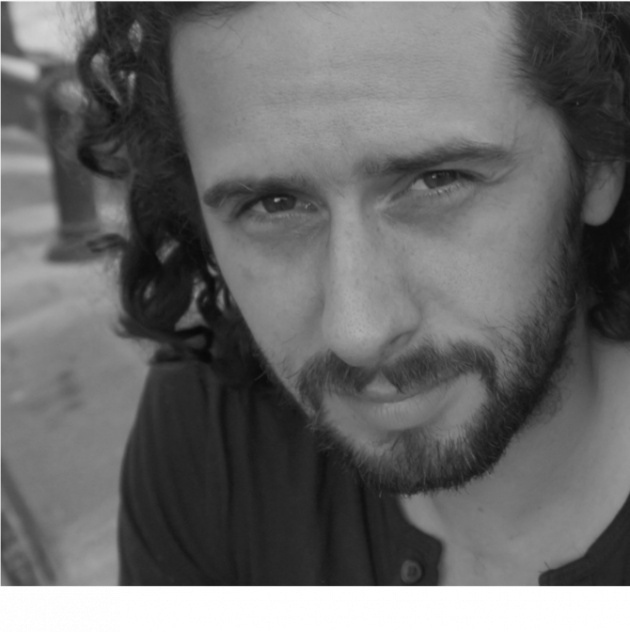
Benjamin De Cleen
Benjamin De Cleen is the academic coordinator of the Journalism and Media in Europe master. His research is situated within critical discourse studies, and has mainly been focused on populist radical right rhetoric, and on the conceptualization of populism, nationalism and conservatism.
Prof. De Cleen is an associate professor at the VUB Communication Studies Department. He is the co-director of the Echo - Media, Culture & Politics Research Group and the international chair of the Centre for Democracy, Signification and Resistance, an international joint research group that brings together researchers from the Vrije Universiteit Brussel, University of Ljubljana, University of Essex, Charles University in Prague, and Aristotle University of Thessaloniki. Prof. De Cleen is also a fellow of the Center for Media, Data and Society at the Central European University in Budapest, Hungary.
Prof. De Cleen teaches two courses in the master: Journalism, Politics and Ideology and Populist and Radical Political Discourses in Europe.
He supervises master theses about populist, nationalist and radical right discourses, and on the relation between journalism and populism, nationalism and right-wing politics.
You can find more information about Prof. De Cleen here.
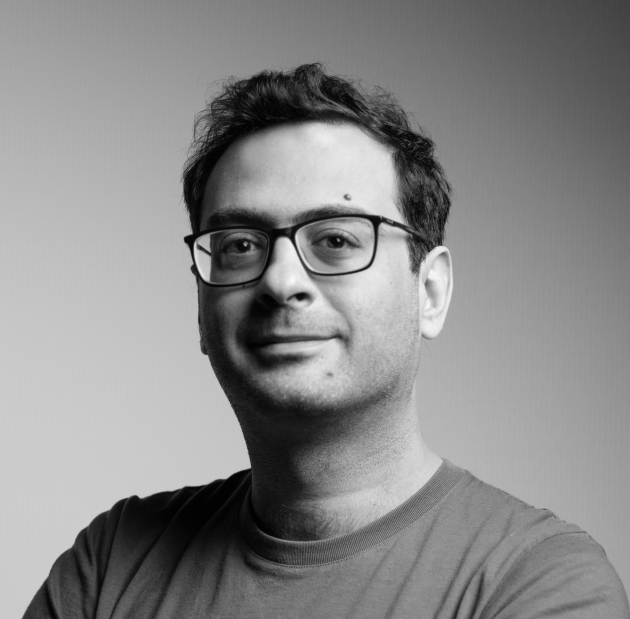
Yazan Badran
Yazan Badran is a Visiting Professor at the Department of Communication Sciences (SCOM) and a Postdoctoral researcher at the Echo and imec-SMIT research centers at the Vrije Universiteit Brussel, Belgium.
His research focuses on the nascent media spheres in the Arab World that developed following the 2011 uprisings including new and emerging forms of journalism in the region and within its exilic and diasporic communities.
Prof. Badran teaches the mandatory course, Political Economy of Journalism in the EU, and the elective course Media, Culture, and Globalization Theories (co-taught with Prof. Jan Loisen). He supervises master theses on new media and politics in the MENA region, journalism and political satire, and emerging media.
More information on Prof. Badran can be found here.
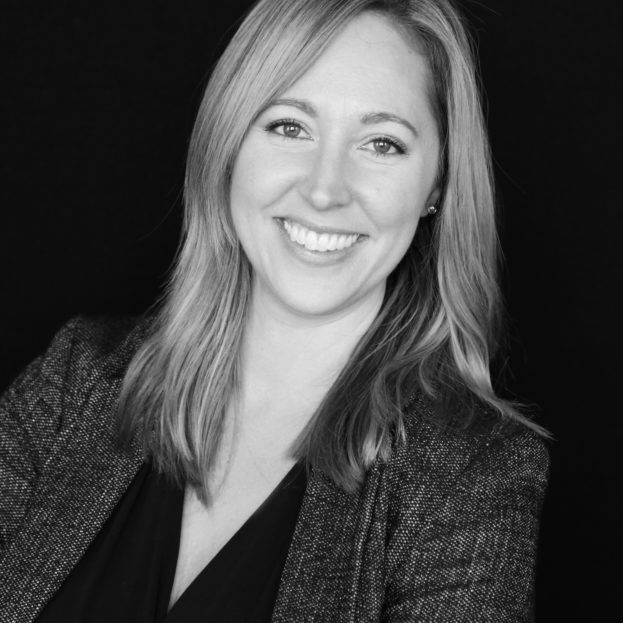
Cristina Gonzalez
Cristina Gonzalez is a guest professor in the Department of Communication Sciences, co-teaching the course Journalism Practice in Europe with Prof. Ike Picone.
She supervises master thesis students on journalism practice, audio innovation in news and emerging news trends in Europe.
Cristina is currently the executive producer of audio for POLITICO Europe in Brussels, Belgium and has worked as a radio and podcast producer, journalist, and communications expert in her native United States, as well as Germany and Belgium. She holds a MSc degree in Communication Studies from the Vrije Universiteit Brussel and a B.A. in Journalism and Political Science from New York University.
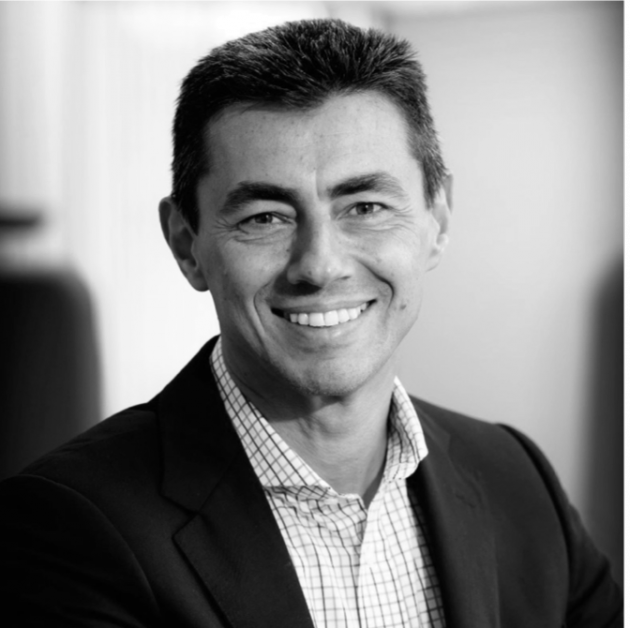
Luciano Morganti
Luciano Morganti is the academic coordinator of the Digital Media in Europe master, assistant professor at VUB and a senior researcher at SMIT. His work focuses on the interaction between (new) communication technologies and democratic processes, with particular attention for the concept and practices of a European Public Sphere. His research is dedicated to social, political and communicative aspects of citizens’ participation, citizens’ empowerment and participatory democracy, with a special focus on new media on the backdrop of the EU integration process and governance and the EU information and communication policies. In addition to this, he also works on Internet governance and on foreign correspondents in the EU.
In the Journalism and Media in Europe master, Prof. Morganti teaches the course European Public Sphere. He is also the coordinator of the Master thesis for students in our English-language masters.
He supervises master theses in the Journalism and Media in Europe master on media and the (European) public sphere, and on mediated citizen participation, especially on the level of the European Union.
You can find more information about Prof. Morganti here.
Ike Picone
Ike Picone teaches and researches disruptions on the crossroad of journalism, technological innovations and democracy. The thread within his research is the study of news use practices within the broad field of journalism studies. More precisely, his work focuses on ‘productive’ use of new(s) media, conceptualized within his research as self-publication. His research topics include user participation to online news, the changing relationship between news audiences and journalists, and the role of new media in the emergence of deliberative public spheres.
Prof. Picone currently promotes two research projects, Media Clusters Brussels and Kenniscentrum Cultuur- en Mediaparticipatie, and is involved in the international Digital News Report project. As a member of the Council for Journalism, he deliberates with journalists and media professionals about cases of journalism ethics.
Prof. Picone teaches two mandatory courses in the master: Journalism: Trends and Technologies and Journalism Practice in Europe.
He supervises master theses on digital disruption in journalism, news use studies, journalistic innovation.
Twitter account @ikepicone
More information on Prof. Picone is here.

Jan Loisen
Jan Loisen is an assistant professor at the Department of Communication Studies and a senior researcher at SMIT. His work focuses on the analysis of media policy at the intersection of economic and cultural concerns and interests, in national, European and global policy forums.
In the Journalism and Media in Europe master, Prof. Loisen teaches Media, Culture and Globalisation Theories (together with Yazan Badran), an optional course in the programme. He also teaches Introduction to Communication Studies, which is assigned to some students as part of their preparatory programme.
Prof. Loisen supervises master theses on media policy, and on the relations between the cultural-societal and business dimensions of media, and media flows and emerging media organizations in an international context.
You can find more information about Prof. Loisen here.
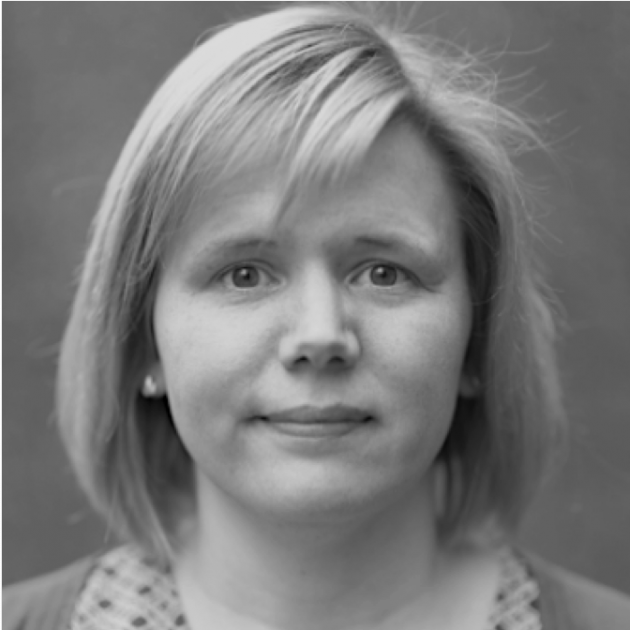
Wendy Van den Broeck
Wendy Van den Broeck is an assistant professor at the department of Communication Studies and the head of living labs and senior researcher at the center for Studies in Media, Innovation and Technology (SMIT).
Her research activities mainly focus on living lab research and user research in the domain of personalised and immersive media, digital television, targeted advertising and smart education.
In the Journalism and Media in Europe master, Wendy Van den Broeck teaches the preparatory course 'Research Methods for Social Sciences'.
She supervises master theses on topics related to personalised and immersive media, targeted advertising and smart education.
Admission criteria and procedure
DIRECT ACCESS
Candidates with a Flemish ‘Bachelor of Science in Communicatiewetenschappen' (VUB or other) degree or with a VUB Bachelor of Social Sciences degree have direct access to the programme.
ADMISSION AFTER SCREENING
All other applications are evaluated individually by an Admission Board. Factors being taken into account by the Admission Board include:
- English language proficiency (see below for minimal criteria)
- Academic degree(s) already acquired in a relevant study field
- Grades scored in previous studies (upload all higher educational transcripts of records)
- Quality of motivation letter, including the fit between your motivation and what we offer
- Other relevant experience
PREPARATORY PROGRAMME
Depending on the content of your previous studies, the Board can assign a short and individual preparatory programme to the candidate. This preparatory programme can be combined with the Master programme and typically consists of one or two extra courses to be taken during the master year. You can not only apply for the preparatory programme if you're not found eligible to join the master.
Language requirements
Good English language skills are an important prerequisite for successfully following the master. There are three ways to prove your proficiency:
Option A: send us one of the following language certificates proving your CEFR B2 level:
- TOEFL (only the internet-based test is accepted): minimum level: 79
- IELTS: minimum level academic module 6.5
- Cambridge English: CAE grade B or CPE grade C (equivalent to the CEFR B2)
- ITACE: minimum grade B2
Due to the COVID-19 pandemic, we are aware that students may face difficulties to take a test in person. Please note that we also accept the TOEFL IBT Special Home Edition and the IELTS Indicator. These are variants of the classic TOEFL and IELTS tests that you may take at home.
Please note that language test results cannot be older than 5 years at the moment of application.
Option B: having successfully completed secondary or higher education with English as language of instruction:
- submit official proof of the language of instruction of your previous study;
Option C: having successfully completed Belgian secondary education
- submit official proof that you completed a study in the Belgian educational system
Application deadlines
It is important to submit your file and all required documents before the deadline!
Application procedure
Step by step overview on the screening process
The review procedure takes time and as multiple departments are involved, you might receive the final outcome only after several weeks. Prospective students are advised to apply as soon as possible, even if they have not yet obtained their degree. Applications can only be submitted through our application website.
An application fee of €50 will be charged to all applicants (refundable if you enroll in the programme).
The different steps in the screening process:
- Check of the completeness of your application file
- Check of the application fee payment
- Check of the academic requirements by the admission board of the programme
- Check of the language requirements
If you've passed all previous steps, you will receive a conditional letter of acceptance. What's next?
APPLICATION SEASON OPENS IN DECEMBER
How to apply to start in September 2022?PREPARATION IS KEY
take your time and prepare well
Must-read information for all international students
Who to contact regarding what topic?
Questions on application procedure and enrollment procedure? >> Contact central admissions office (mail to: admissions@vub.ac.be)
Questions on programme content? >> Contact the faculty (mail to: faces@vub.be)
Questions on the academic screening? ==> Contact the faculty (mail to: faces@vub.be)
Questions on exemptions/credit transfers? >> Contact your future study counselor (mail to: stbfaces@vub.ac.be)
Questions on visa regulations/requirements/procedure or Refugee Programme? >> Contact the International Relations and Mobility Office (IRMO) (mail to: international.relations@vub.ac.be)





